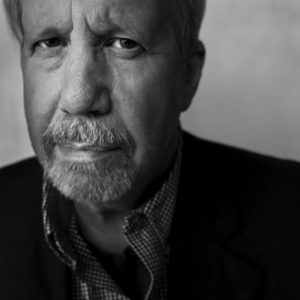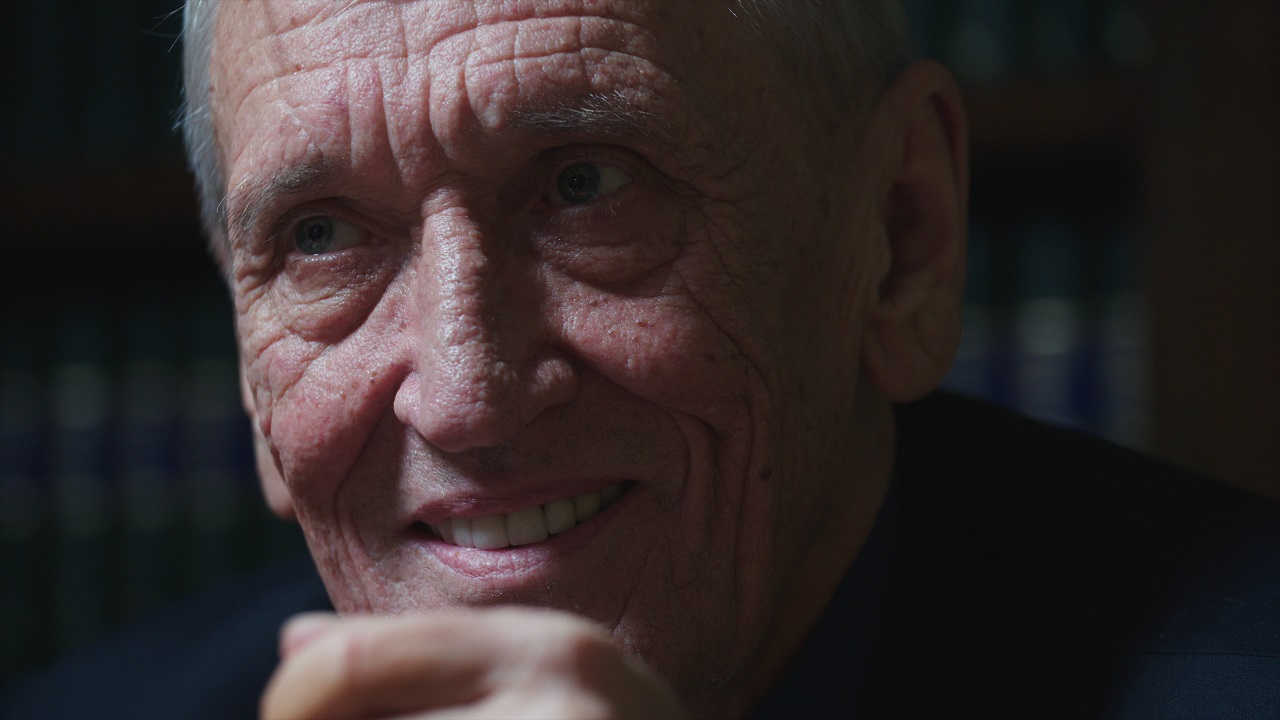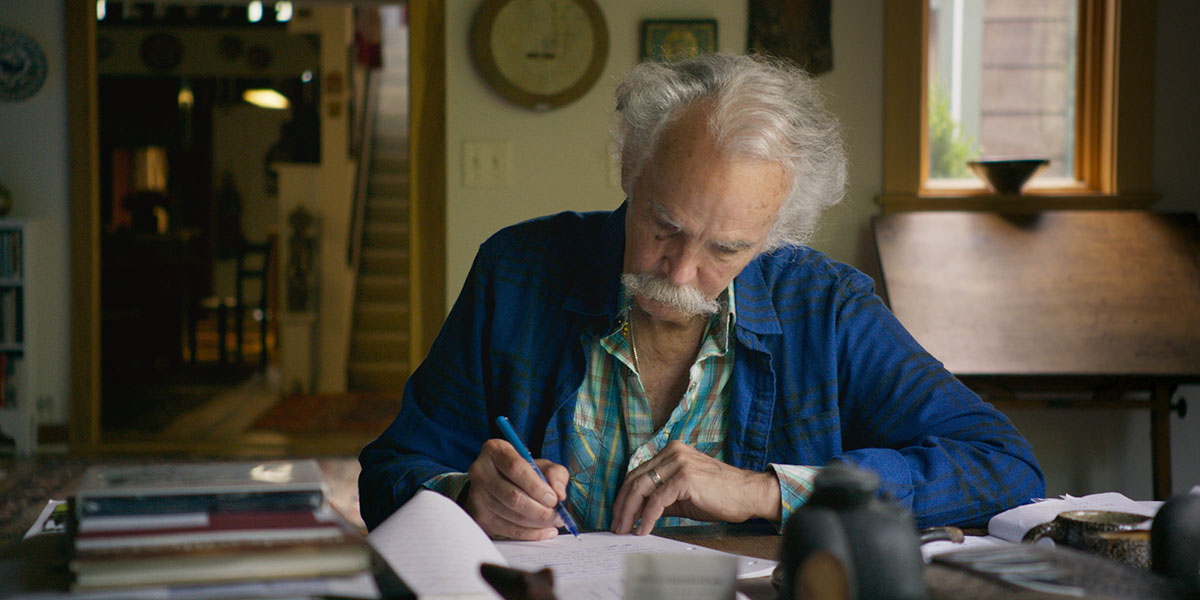For decades Alan Zweig (There Is A House Here, Hope) has been a unique voice in Canadian documentary, providing sometimes startling, at times irascible, often moving works about a wide variety of subjects, from criminals to curmudgeons to collectors. His latest, Coppers, is centered around former police officers as they recount the traumas that continues to haunt them long after they turned in their gun and shield. Zweig’s insightful questioning and sympathetic tone allows a space where some pretty astonishing things are revealed, both about the nature of police work and, inadvertently, about some of the personal flaws of those that choose the profession in the first place.
POV: Jason Gorber
AZ: Alan Zweig
This interview has been edited for brevity and clarity.
POV: You mention in the film you were a taxi driver.
AZ: For fifteen years.
POV: What kind of a relationship did you have with the police back then?
AZ: I did not have an enjoyable relationship with the police. When you drive nights, at a certain time, it’s cops and cabs on the road. If they get bored, cabs are easy targets. I think cops don’t like cab drivers; there used to be old wives’ tales about cab drivers back in the old days being bootleggers and connected to pimps.

POV: So it’s fair to say you didn’t empathize with the job that they had to do.
AZ: No, I did not empathize with their job.
POV: And yet here you’ve made a film that seems entirely about empathy. Could you talk about the decision to focus on these individuals?
AZ: I didn’t intend to make a film entirely about empathy. I met one cop, Gary, who’s in the film, about five or six years ago. I could see in him a very tough guy who I probably wouldn’t have liked to run in to when he was younger. Yet I could also see that something had made him much more fragile.
POV: How did you find others to open up about their stories?
AZ: Gary knew a few people that would do it. You kind of put the word out. It’s “catch as catch can.”
POV: But clearly, this is a very tight knit community and it’s one that’s noticeably reticent to talk about their past. There are stories that are alluded to that are never expanded upon.
AZ: I went in knowing beforehand from my Errors and Omissions lawyer that if they told stories that implicated other people I wouldn’t be able to use them, which is quite a severe limitation on what you can do! In a way, knowing that allowed me to not be worried about it. Even if they told me some hair-raising story about the night their partner did this or that, the lawyers wouldn’t let me put it in the film. It’s better to have them tell me they can’t tell me, where you use your imagination, rather than to just leave it out.
POV: There were a list of participants at the end credits who we don’t see on screen. Were they simply not a good fit? Or were they reticent to open up?
AZ: It wasn’t reticence. There was one guy. I loved his story, and would like to make a whole film about him, but he was just way too complicated to fit into eight minutes. A couple of them were almost too happy for me. Some of them had mostly worked in administration, and they never really faced the trauma that others did. Some were just less articulate. I believe that in every film I’ve ever made, people tell me what they want to tell me. Maybe there was some incredible gold that I didn’t get, but I take it as a given that you’ll get what you get and there’ll be enough. That will determine the film you make.
POV: Some may see this film and push back, suggesting that this is a small sampling and you’re looking to potentially aggrandize yourself through the suffering of officers. Was that ever a consideration that what you have is too small a segment of the greater police population?
AZ: I don’t believe that’s true. I imagine there will be pushback. I’m friends with a guy called Adam Nobody. He got beat up at the G20, which is a story in a film I made called 15 Reasons to Live. I don’t want to put words in his mouth, and we talked to each other when I was making this, but I assume he’ll have a hard time finding any empathy for cops. He might feel like I’m an apologist for cops. That’s a possibility I’m willing to live with. I’ll only say that the first person who tells me I let cops off too easy, I will tell them that I once made a film about ex-cons (A Hard Name) and nobody asked me that question. Nobody said I let the ex-cons off too easy, so it is curious that they’re harder on the cops than they are on the ex-cons. But that may happen.
POV: The film has some explicit implications from several of the participants about the insensitivity of those in command. Did you consider speaking with the current senior staff?
AZ: It’s not journalism, so I don’t look for people to confirm or deny things. I’m only asking people to talk about what happened to them. I’m not asking them to talk about other people and what they do. Nobody in the film specifically says that higher ups are not sensitive to this. But they’re not. They wouldn’t have had the experience they had if higher ups were more sensitive. It’s not a both sides thing. I feel quite comfortable saying that cops are suffering from trauma and that the whole world is not sympathetic. I’m not excusing any of their actions, just like I didn’t excuse the actions of the ex-cons. I’m just allowing them to talk about some of the things that might have made them who they were.
POV: How would you delineate the difference between the documentaries you make and journalism?
AZ: That’s a big question. I’ve never done journalism, so I wouldn’t really know, except that I have been occasionally asked about the other side. I made I, Curmudgeon, where I let negative people talk about whatever and somebody would say, ‘what about the other side?’ What am I supposed to do? Every time a negative thing is said, should I have another guy coming in and saying it’s all good? I consider myself a creative filmmaker who uses documentary as my medium. I don’t think I’m a journalist because I’m not trying to tell a specific story. I’m not trying to prove a point, and so I don’t feel any responsibility to give the other point of view. I guess that’s what a journalist would do.
POV: Coppers has an often spare aesthetic, feeling a bit like an interrogation with the mic visible on the table and the high angle shot showing the camera setup.
AZ: I have seen many incredibly powerful and almost cinematically brilliant things on TV where the guy’s “in the box” as they say. Take Colonel Russel Williams, the guy from Trenton who raped and killed all of those people. There’s a scene you can see on CBC of him in the box when they get him to essentially confess. The camera is way up in the corner, a bad overhead wide shot, and it’s amazing. No cutting, no close-ups, no nothing. For a minute I considered making the whole film like that, even though it would probably be the death of cinema! I find it incredibly powerful. I’ve always had a spare aesthetic. This is actually one of the most complicated films I’ve ever done if you include that surveillance camera. I shot Coppers with three cameras which I’ve never done before.
POV: Are you finding it as easy or harder to make the films that you want to make these days, given the current media environment?
AZ: I don’t know what a zero-sum game is exactly, but I would say that there is a force pushing me off [filmmaking], and that force is getting harder, but that there’s another force, and it could be me, or it could be some of the success I’ve had in the past, that’s pushing me forward. It’s a draw. I’m privileged—not just white, male privilege—but privileged as a filmmaker. I’ve been privileged to make the films I’ve made and to make them in an aesthetic that is my own. I’ve been really lucky. My only complaint would be that I thought at the point that I had made ten docs and had won this and that [at festivals], that it would get easier. It certainly hasn’t, but I’m doing it.
Visit the POV TIFF Hub for more coverage from this year’s festival!

Courtesy of TIFF
Director Alan Zweig











